|
|
|
Remember – support is on offer at BU if you are thinking of introducing your research ideas into the NHS or social care – email the Clinical Research mailbox, and take a look at the Clinical Governance section of the website.
Latest research and knowledge exchange news at Bournemouth University
|
|
|
Remember – support is on offer at BU if you are thinking of introducing your research ideas into the NHS or social care – email the Clinical Research mailbox, and take a look at the Clinical Governance section of the website.
 Today 11 August we are running a workshop at Talbot Campus (in person and online) facilitated by Prof. Sujam Marahatta on ‘Health Research in Nepal: Past and Present, Opportunities and Barriers’. The physical meeting will be in the Fusion Building room F111 starting at 14:00 and finishing at 16:00. Prof. Marahatta, is Professor of Public Health at Manmohan Memorial Institute of Health Sciences (MMIHS) in Kathmandu, Nepal. He is visiting Bournemouth University as part of the ERASMUS+ Key Action 107 which includes the exchange of academic staff and students between BU and MMIHS. Several of BU’s PhD students and staff have already been to MMIHS as part of this exchange. He hopes to stimulate debate and generate ideas that will help build health research capacity in Nepal.
Today 11 August we are running a workshop at Talbot Campus (in person and online) facilitated by Prof. Sujam Marahatta on ‘Health Research in Nepal: Past and Present, Opportunities and Barriers’. The physical meeting will be in the Fusion Building room F111 starting at 14:00 and finishing at 16:00. Prof. Marahatta, is Professor of Public Health at Manmohan Memorial Institute of Health Sciences (MMIHS) in Kathmandu, Nepal. He is visiting Bournemouth University as part of the ERASMUS+ Key Action 107 which includes the exchange of academic staff and students between BU and MMIHS. Several of BU’s PhD students and staff have already been to MMIHS as part of this exchange. He hopes to stimulate debate and generate ideas that will help build health research capacity in Nepal. 

In order to open the meeting to other researchers in the UK studying Nepal the meeting will be hybrid and also available via Teams.
Meeting ID: 399 955 418 574
Passcode: 6Uzh5k
Prof. Edwin van Teijlingen, Prof. Vanora Hundley & Dr. Pramod Regmi
Faculty of Health & Social Sciences
If you answered “yes” to the above questions, we would like to invite you to participate in a survey to access the roles of faith-based organisations in mitigating the climate change crisis in Bournemouth, Christchurch, and Poole.
Please click here to participate in the survey.
Be assured that all answers you provide will be kept strictly confidential and you will not be identified in any way in the data.
Your participation will be appreciated.
If you have any questions, please contact one of us at:

Photo by Anupam Mahapatra on Unsplash
Join psychology lecturer Dr Sarah Collard at a free online event this Friday to hear how her research is challenging the assumptions around exercising with epilepsy. Dr Collard was awarded ACORN funding to explore the physical activity levels of people with epilepsy in the UK. The project aimed to:
 In the online discussion, Dr Collard will outline her findings so far, which will provide important data for people with epilepsy and their families and carers, as well as medical professionals and those working in the fitness and leisure sector.
In the online discussion, Dr Collard will outline her findings so far, which will provide important data for people with epilepsy and their families and carers, as well as medical professionals and those working in the fitness and leisure sector.
To join the discussion and hear her findings, sign up here.


Thank you to everyone who has already provided information via the SharePoint site. The deadline for reporting is Friday 7 October 2022.
This data forms part of BU’s annual Higher Education – Business & Community Interaction survey and is used to calculate our Higher Education Innovation Funding (HEIF) grant. It also feeds into our submission to the Knowledge Exchange Framework (KEF) so it is really important for us to provide a full and accurate picture of all our public engagement.
If you’re not sure if your event is eligible for inclusion, the SharePoint site includes further details and guidance.
We collect a wider range of data than is required for HE-BCI, for additional external and internal reporting, e.g. HEIF Annual Monitoring Statement and Athena Swan. For the purposes of the HE-BCI survey, you must record the following:
Without this specific data, we will not be able to include your event in the survey.
The SharePoint site provides details about which data is collected and how, including calculating attendee numbers and staff time, and reporting online activities and multiple related events. If you have any further questions about the HE-BCI return, please contact publicengagement@bournemouth.ac.uk.
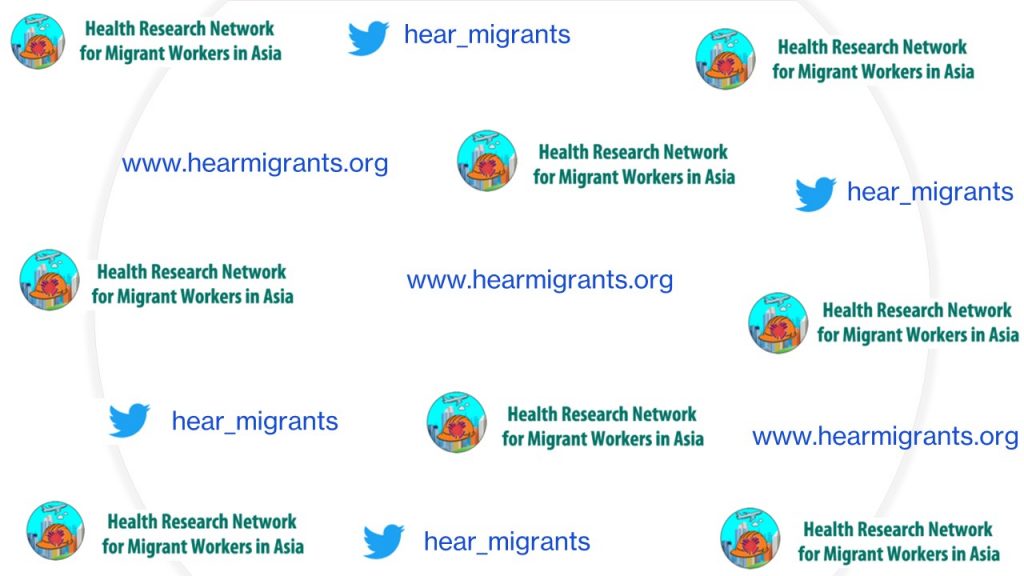 Today the International Journal of Environmental Research and Public Health accepted the latest COVID-19 paper from an multidisciplinary team in the Faculty of Health & Social Sciences (FHSS). The paper ‘Fear, Stigma and Othering: The Impact of COVID-19 Rumours on Returnee Migrants and Muslim Populations of Nepal’ is based on research funded by British Academy Special Research Grants: COVID-19 Awards. This British Academy funded-study brought together social scientists and health researchers interested in social and media aspects of the COVID-19 pandemic.
Today the International Journal of Environmental Research and Public Health accepted the latest COVID-19 paper from an multidisciplinary team in the Faculty of Health & Social Sciences (FHSS). The paper ‘Fear, Stigma and Othering: The Impact of COVID-19 Rumours on Returnee Migrants and Muslim Populations of Nepal’ is based on research funded by British Academy Special Research Grants: COVID-19 Awards. This British Academy funded-study brought together social scientists and health researchers interested in social and media aspects of the COVID-19 pandemic. 
The project is apart of the Health Research Network for Migrant Workers in Asia and it is led by Dr. Pramod Regmi (Department of Nursing Sciences), Dr. Shovita Dhakal-Adhikari (Department of Social Sciences and Social Work), Dr. Nirmal Aryal (formerly Department of Midwifery & Health Sciences and soon to be appointed in the Department of Nursing Sciences), external collaborator Dr. Sharada Prasad Wasti from the University of Huddersfield, and Prof. Edwin van Teijlingen (Department of Midwifery & Health Sciences).
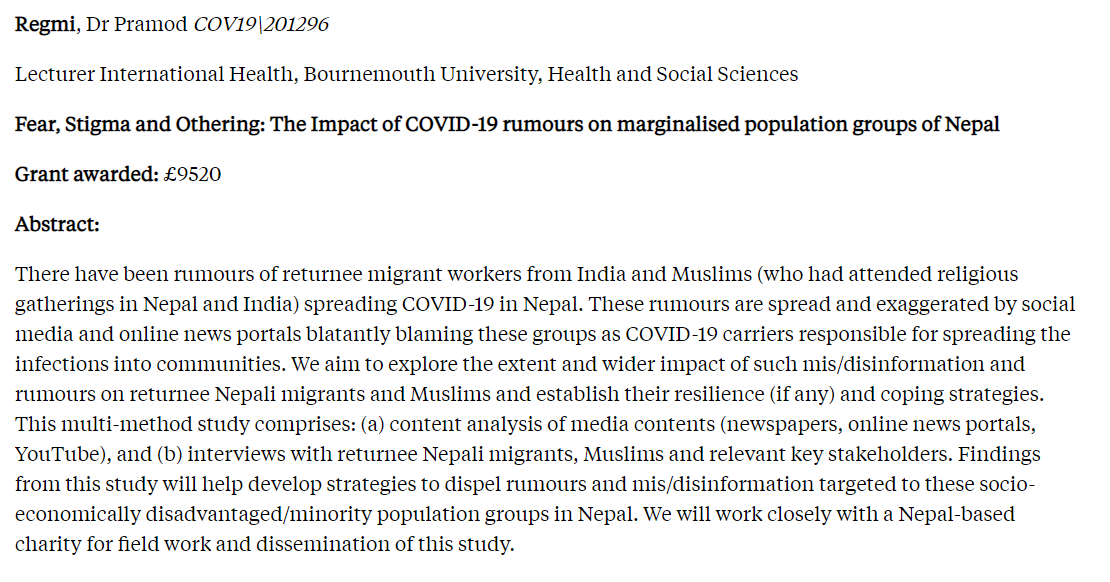
Reference:
My name is Sulochana Dhakal-Rai. I am a final-year PhD student at Faculty of Health and Social Sciences (FHSS). My PhD research is related to factors affecting the rising rate of CS in urban hospitals in Nepal. There are several reasons to choose BU to do PhD study. Firstly, this university offers strong professional orientation with focus on academic excellence and employability to multinational students from multicultural background. Secondly, it provides opportunities to students for undertaking different activities, for example – international student exchange programme. I am always keen to be involved in such types of activities for my personal and professional development.
I applied for Turing Scheme Fund to do research activities in Nepal. The application process was very easy. I had received positive support from my supervisors and team of international grants. I was delighted to participate in international mobility, because I had a chance not only sharing my research experience to student and teachers at Manmohan Memorial Institute of Health Sciences (MMIHS), Kathmandu, but also to do my own research activities (secondary data verification and analysis).
Although, it was hot weather, polluted and over-crowded in Kathmandu, I enjoyed eating Nepali cuisine, meeting own people and speaking Nepali language. For me, there was not any problem in local language and culture. However, it was uncomfortable using public transport at times. I had suffered from of an episode of indigestion problem as well.
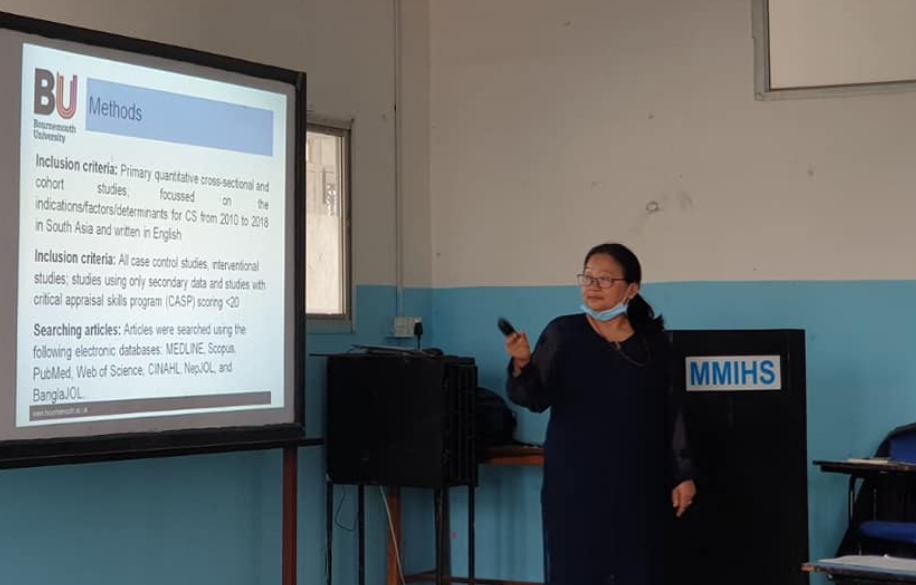 I loved meeting students and teachers of MMIHS. During my stay in MMIHS, I had the opportunity to share experience about my research study, using mixed methods in research study and my experience working as a foreign nurse in UK to relevant teachers and students. They were really good and inspiring people. I always received respect and support from them while I was there.
I loved meeting students and teachers of MMIHS. During my stay in MMIHS, I had the opportunity to share experience about my research study, using mixed methods in research study and my experience working as a foreign nurse in UK to relevant teachers and students. They were really good and inspiring people. I always received respect and support from them while I was there.
After this international activity, I have learnt how to work with people from different organisation and different place. I have developed my confidence in employability and career skills. I would like to express my thanks to Bournemouth University for providing me such a golden opportunity. I strongly recommend to other student at Bournemouth University to participate these kinds of international mobility programmes.
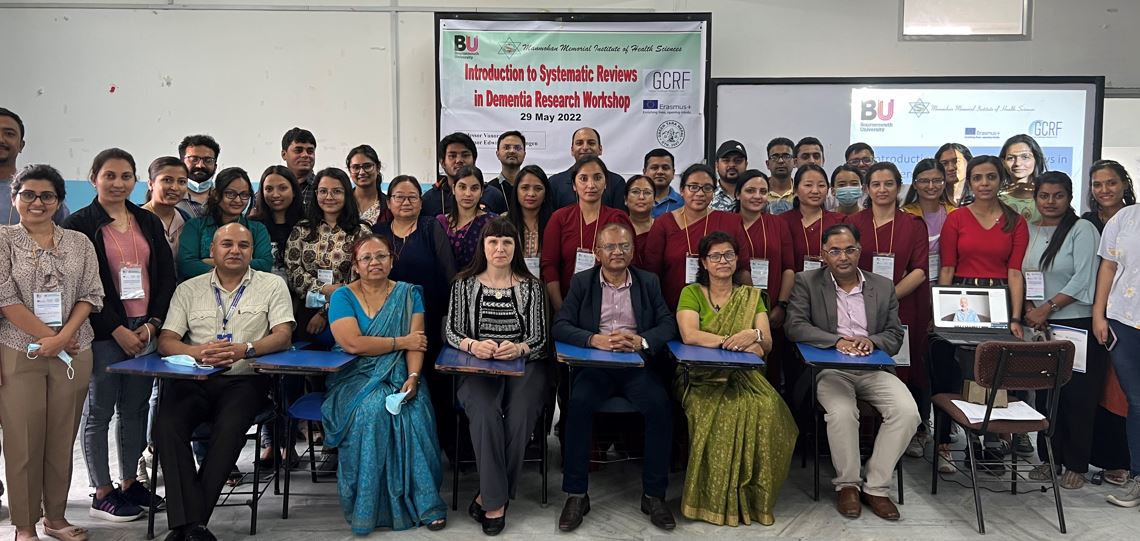
Sulochana Dhakal-Rai.
 Some people are unsure (or unaware) of the contribution of Bournemouth University’s Visiting Faculty. At many UK universities eminent scholars (researchers, teachers and/or professionals) are offered honorary unpaid appointments to enhance the skills and knowledge of that institution’s academic staff and/or students. Unusually, these Visiting Faculty members are hosted when there already exists a well-developed professional relationship between the Visiting Faculty and the university’s staff. The Faculty of Health & Social Sciences (FHSS) has a number of Visiting Faculty members, including some local, national and international collaborators.
Some people are unsure (or unaware) of the contribution of Bournemouth University’s Visiting Faculty. At many UK universities eminent scholars (researchers, teachers and/or professionals) are offered honorary unpaid appointments to enhance the skills and knowledge of that institution’s academic staff and/or students. Unusually, these Visiting Faculty members are hosted when there already exists a well-developed professional relationship between the Visiting Faculty and the university’s staff. The Faculty of Health & Social Sciences (FHSS) has a number of Visiting Faculty members, including some local, national and international collaborators.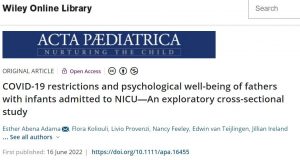
It just occurred to me this morning that my last two scientific publications, including the one highlighted yesterday on the BU Research Blog are co-authored with academics who are FHSS Visiting Faculty. Yesterday’s paper ‘‘A survey of Post-Traumatic Stress Disorder, Anxiety and Depression among Flood Affected Populations in Kerala, India‘ [1], was co-authored by two of our Visiting Faculty: Prof. Padam Simkhada (in the School of Human & Health Sciences at the University of Huddersfield) and Dr. Brijesh Sathian (in the Geriatrics & Long-term Care Department at Rumailah Hospital, Qatar). 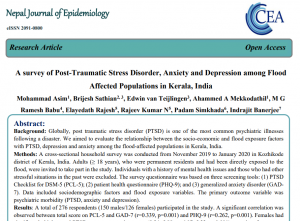 Whilst last week’s publication ‘COVID-19 restrictions and psychological well-being of fathers with infants admitted to NICU (neonatal intensive care units)—an exploratory cross-sectional study‘ in the journal Acta Paediatrica [2] was co-authored by two Visiting Faculty members from University Hospitals Dorset NHS Foundation Trust.
Whilst last week’s publication ‘COVID-19 restrictions and psychological well-being of fathers with infants admitted to NICU (neonatal intensive care units)—an exploratory cross-sectional study‘ in the journal Acta Paediatrica [2] was co-authored by two Visiting Faculty members from University Hospitals Dorset NHS Foundation Trust.  The two clinicians, who co-authored this international paper, are both based at Poole Maternity Hospital: Prof. Minesh Khashu (Lead Consultant Neonatologist) and Ms. Jillian Ireland (Professional Midwifery Advocate).
The two clinicians, who co-authored this international paper, are both based at Poole Maternity Hospital: Prof. Minesh Khashu (Lead Consultant Neonatologist) and Ms. Jillian Ireland (Professional Midwifery Advocate).
Both papers are Open Access, and hence free to access for anybody across the globe.
References:
Yesterday the latest issue of the Nepal Journal of Epidemiology carried our paper ‘A survey of Post-Traumatic Stress Disorder, Anxiety and Depression among Flood Affected Populations in Kerala, India‘ [1]. This paper was co-authored by two Faculty of Health & Social Sciences (FHSS) Visiting Faculty, namely Prof. Padam Simkhada (in the School of Human & Health Sciences at the University of Huddersfield) and Dr. Brijesh Sathian (in the Geriatrics & Long-term Care Department at Rumailah Hospital, Qatar). This study is longer-term follow-up of the 2018 floods in Kerala. The authors conducted a cross-sectional household survey between November 2019 to January 2020 in one district of Kerala with adults who had been directly exposed to the 2018 flood. The paper concludes that the vast majority of respondents (92% of women & 87% of men) still showed sub-clinical psychiatric symptoms one year after the flood. An earlier paper had argues for further research in India to explore “the long-term sequelae of catastrophic floods on physical and mental trauma on disaster-affected populations” [2].
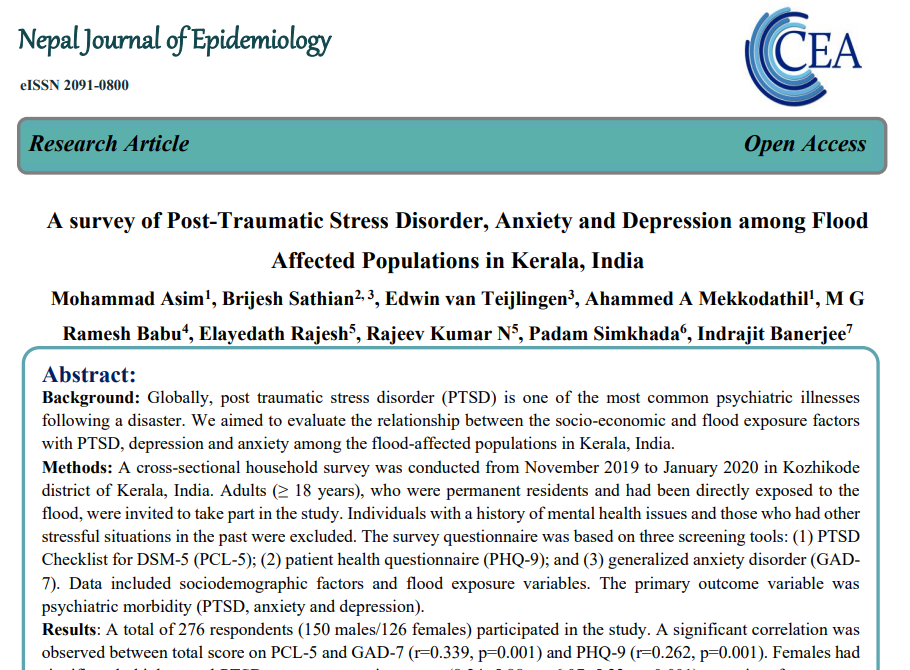
Prof. Edwin van Teijlingen
Centre for Midwifery, Maternal & Perinatal Health (CMMPH)
References:
 Exciting changes are coming to you from August 2022 in terms of the support provided by RDS’ Research Facilitators.
Exciting changes are coming to you from August 2022 in terms of the support provided by RDS’ Research Facilitators.
As agreed at the December 2021 Research Performance and Management Committee, the focus of the Research Facilitators will change from Faculty-facing to funder specialisms, based on the major funders. The current post titles will change to ‘Research Facilitator for…’ and the contacts for each post are detailed below:
The focus of the Research Facilitator support will remain largely unchanged, which is:

Support for all other types of bids/funders will be provided through Faculty Leadership and Research Mentors.
The change to funder specialisms will mean that we can provide support to a larger number of academics through funder focussed briefings, scramble events, STEAMLabs (to form interdisciplinary ideas linked with external collaborators), and training through the RKEDF. We have already started transitioning to funder-focussed training this academic year, and these opportunities will also be available next academic year.
 In addition to Research Facilitators, there are several support options in place to support you through the pre-award process and finding funding opportunities tailored to you. BU have invested in Research Professional, which enables you to target opportunities specifically for your research area. If you are new to Research Professional, this link provides you with help guides and bi-monthly webinars to help you get started. In addition, weekly funder briefings will continue this academic year, and the programme for 2022/23 will ensure a greater focus on specific opportunities each week. We will also be trialling a user-friendly ‘funding opportunities’ newsletter shortly.
In addition to Research Facilitators, there are several support options in place to support you through the pre-award process and finding funding opportunities tailored to you. BU have invested in Research Professional, which enables you to target opportunities specifically for your research area. If you are new to Research Professional, this link provides you with help guides and bi-monthly webinars to help you get started. In addition, weekly funder briefings will continue this academic year, and the programme for 2022/23 will ensure a greater focus on specific opportunities each week. We will also be trialling a user-friendly ‘funding opportunities’ newsletter shortly.
More information will be communicated in July to help you navigate the pre-award process. Further communications will outline the changes leading up to August 2022. Stay tuned!

Photo by Martin Wilner on Unsplash
Alzheimer’s Research UK (ARUK) is offering funding to support public engagement projects that engage with underserved audiences on the topic of dementia, and meet one or more of the following criteria:
The scheme is open to those with the ideas, passion and ability to realise innovative public engagement projects on the topic of dementia. Applicants are encouraged to forge links with communities, collaborators or groups to strengthen ideas, and ARUK will be facilitating relationship-building during the application process.
If you are interested in applying, you are encouraged to join ARUK’s information webinar at 11am Thursday 30 June and for their Speed Networking Event at 11am on Thursday 7 July. These events will help you find out more about the scheme, as well as meeting potential partners for your project.
You do not need to have a fully formed proposal to submit an expression of interest but should outline what you would like to do, the purpose or need for it, the outcomes you want to achieve, and what partners or expertise you are seeking to be able to deliver it.
You can find out more about the Inspire fund on their website, with details of eligibility, the application process and expression of interest form, frequently asked questions and previous Inspire Fund projects.
Because this is a funded position, RDS will need to treat your application the same way we would for any grant bid. To that end, we look forward to receiving completed e-ITBs by Thursday 7 July.
The ARUK deadline for expressions of interest is: 5pm on Thursday 4 August 2022.
You are also advised to consult with the Public Engagement with Research (PER) team in RDS to discuss your application – you can book a 1-2-1 appointment here with Adam Morris, Engagement Officer.
 Start reporting your data for events with external audiences
Start reporting your data for events with external audiencesWe are now collecting information for the annual Higher Education – Business & Community Interaction (HE-BCI) survey. This data is used to calculate our Higher Education Innovation Funding (HEIF) grant and feeds into our submission to the Knowledge Exchange Framework (KEF), so it is really important that we can provide a full and accurate picture of all our public engagement.
To support this, we are starting the process to collect the data earlier than usual. You can enter details of your events now by going to the SharePoint site. All events need to have taken place between 1 August 2021 and 31 July 2022.
If you’re not sure if your event is eligible for inclusion, the SharePoint site includes further details and guidance.
We collect a wider range of data than is required for HE-BCI, for additional external and internal reporting, e.g. HEIF Annual Monitoring Statement and Athena Swan. For the purposes of the HE-BCI survey, you must record the following:
Without this specific data, we will not be able to include your event in the survey.
The SharePoint site provides details about which data is collected and how, including calculating attendee numbers and staff time, and reporting online activities and multiple related events. If you have any further questions about the HE-BCI return, please contact publicengagement@bournemouth.ac.uk.
Yesterday a colleague in Nepal notified me that the publication of our latest paper has been delayed. This paper ‘Writing and publishing a reflective paper: Three case studies’ [1] is another method-type paper on aspects of academic writing and publishing published by BU academics and FHSS Visiting Faculty. A delay in getting in print is not uncommon in academic publishing, but usually the justification is that reviewers are sitting on the manuscript and not returning their report, or the journal editor can’t find academics to volunteer as reviewers, or the editor is ill. Occasionally the journal has too few papers to publish the next issue yet with your accepted paper in it, but this time the excuse was ever rarer. 
We had submitted our paper to a brand new journal. A research collaborator in Kathmandu had asked me to submit a paper for the journal’s inaugural issue, which we did as we saw this a part of our role in academic capacity building in Nepal. The delay in publishing this journal is the shortage of ISSN [International Standard Serial Number] numbers in Nepal. Every good academic journal across the globe will have registered for a unique ISSN number [2]. Apparently the office issuing ISSN numbers in Paris head office has not delivered ISSNs to Nepal, and according to my colleague “many journals are waiting for a number …It’s not good news for the academic writers and scholars but we’re really sorry for late due to the unavailability of ISSN.”

Prof. Edwin van Teijlingen
Centre for Midwifery, Maternal and Perinatal Health
References:
 The RDS Funding Development Briefings occur weekly, on a Wednesday at 12 noon.
The RDS Funding Development Briefings occur weekly, on a Wednesday at 12 noon.
Each session covers the latest major funding opportunities, followed by a brief Q&A session. Some sessions also include a spotlight on a particular funding opportunity of strategic importance to BU.
Next Wednesday 29th June, there will be a spotlight on the UKRI Future Leader Fellowships.
We will cover:
For those unable to attend, the session will be recorded and shared on Brightspace here.
Please join the briefing by clicking the link below.
Earlier this week the editor of the Journal of Nepal Public Health Association informed us the journal had accepted our latest paper ‘Health System Strengthening: The Role of Public Health in Federal Nepal’ [1]. This article addresses some of the key Public Health approaches around the ongoing federalisation of the state of Nepal and the associated decentralisation processes in its health system. This is the third paper of our three-year project, which is UK-funded by the MRC, Wellcome Trust and DFID under the Health Systems Research Initiative and led by Dr. Julie Balen and Prof. Simon Rushton based at the University of Sheffield. The first two papers introduced our international research project ‘The impact of federalisation on Nepal’s health system: a longitudinal analysis’ [2], and focused on COVID-19 when examining the effects of changing Nepal’s constitution towards a federal republic on its health system [3].

Prof. Edwin van Teijlingen
CMMPH (Centre for Midwifery, Maternal & Perinatal Health Research)
References
Within the Research Environment pages on the BU website, there is now a section on the Trusted Research agenda.
The Trusted Research Agenda is a government initiative to secure the integrity of the system of international research collaboration and innovation.
Please visit the page to find out more, including key details and guidance.

Photo by Andrew Moca on Unsplash
Learn how to engage stakeholders and communities in your research in a more meaningful, collaborative way in this short course, led by the co-director of the National Centre for Research Methods, Professor Melanie Nind. We have a small number of places left for researchers at all stages in their careers – you can sign up here.
The course comprises two 2-hour workshop sessions for 12-30 people (optimum 20) plus recordings and additional materials. Both sessions will be in person at the Bournemouth Gateway Building, and we encourage academics from all faculties to sign up for both workshops.
Participants will gain clear insight into the multiple agendas driving participatory research. Together we will develop know-how in addition to know-what needed for participatory research. The group will work collaboratively to develop their own ideas stimulated by shared examples and real-life conundrums.
Day 1: The why of participatory research – Adding value
Day 2: The how of participatory research – How to enhance research participation and quality
Professor Nind is also the author of What is Inclusive Research?, Director of the Centre for Research in Inclusion at the University of Southampton and Deputy Director of the South Coast Doctoral Training Partnership. She has expertise in the areas of education, disability studies and methodology and extensive experience supporting the development of participatory/inclusive research both locally and internationally.